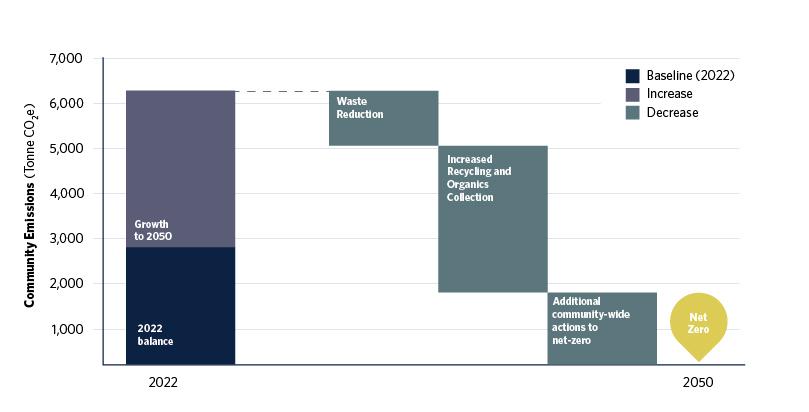Goal:
Transition towards a zero-waste community by creating opportunities for residents to share, reuse, and repair, supporting the circular economy. Thoughtful building and neighbourhood design, along with community programming, make waste sorting for recycling and organics easy and efficient for all residents and visitors. Construction and demolition practices make efficient use of building materials and optimize their reuse and diversion from landfill.
TargetsBy 2035, per capita waste emissions are reduced by at least 30% from 2022 levels. By 2050, UBC’s residential neighbourhoods will have achieved net-zero emissions from solid waste. |

Action Highlights
🟩 high impact mitigation 🟦 high impact adaptation
Selected key actions are summarized below. To see the full detailed list of actions, please refer to the NCAP action matrix located in the Documents and Resources page.
Actions in this scope area will also help deliver the following co-benefits:
- Affordability: reducing the costs associated with taking climate action
- Community Connection: supporting opportunities for community interaction and connection
- Access for All: making it easier for everyone to access spaces, information, processes, or programs
- Academic Connection: providing opportunity for research connections with UBC’s academic community
Actions You Can Take
|
Equity Considerations
|